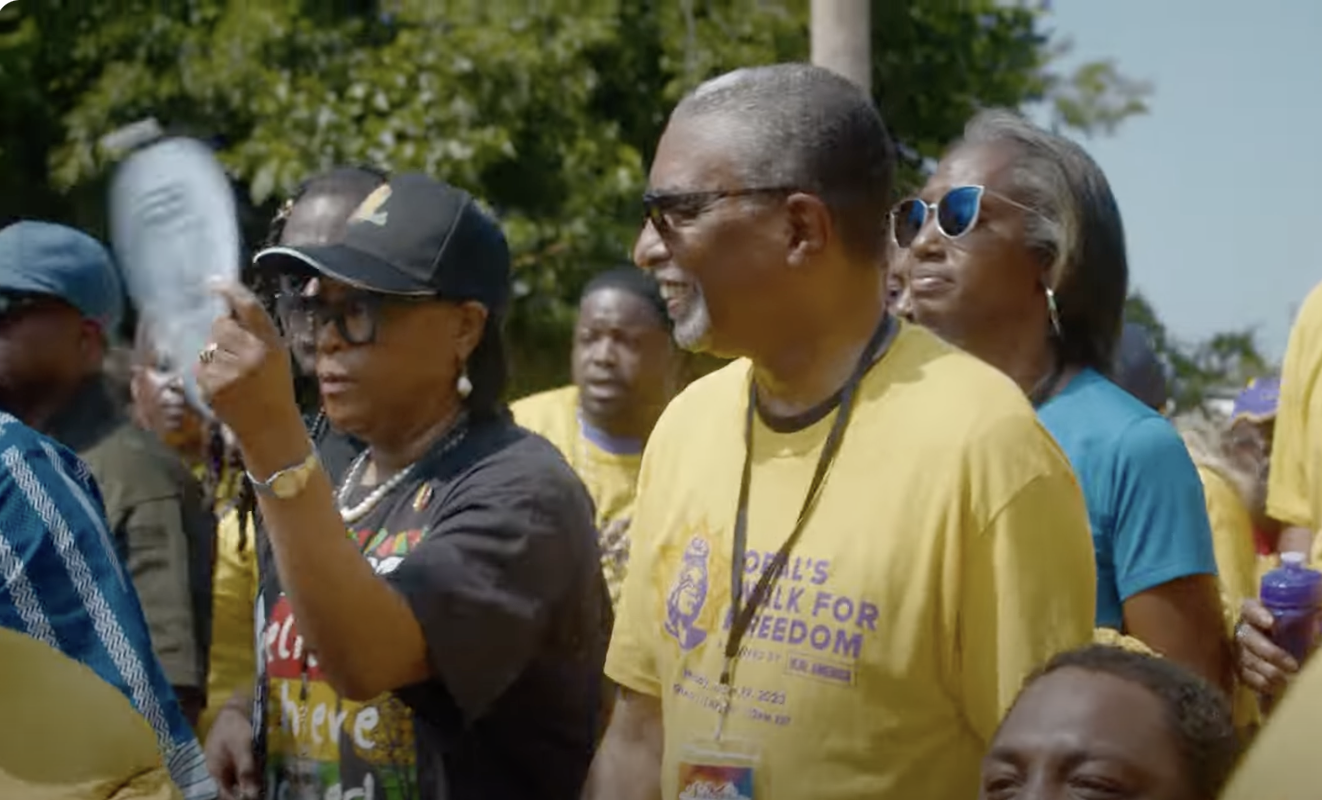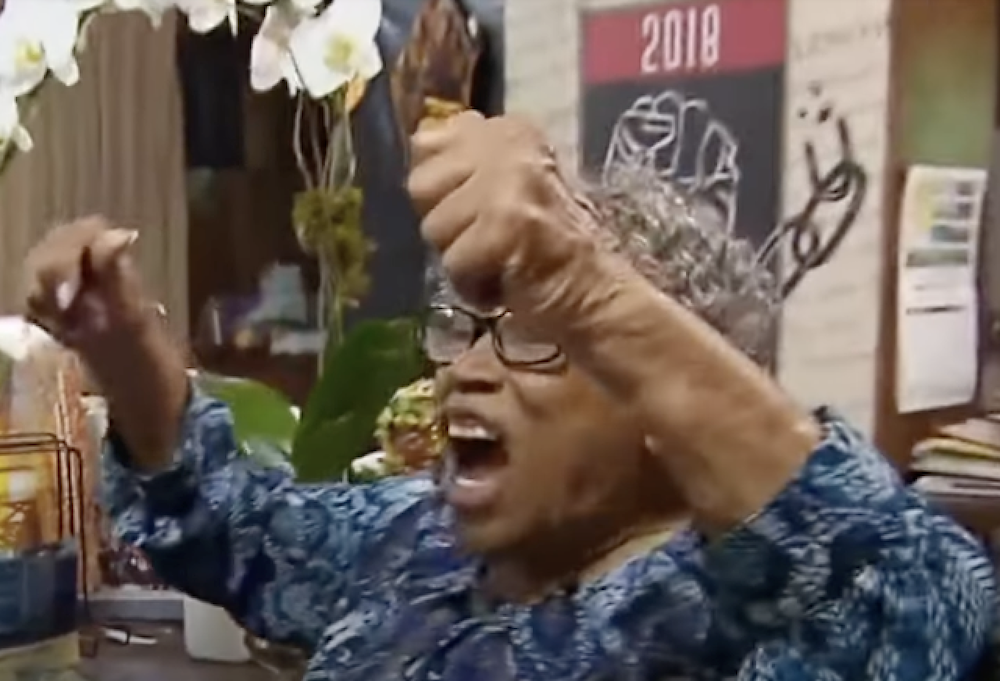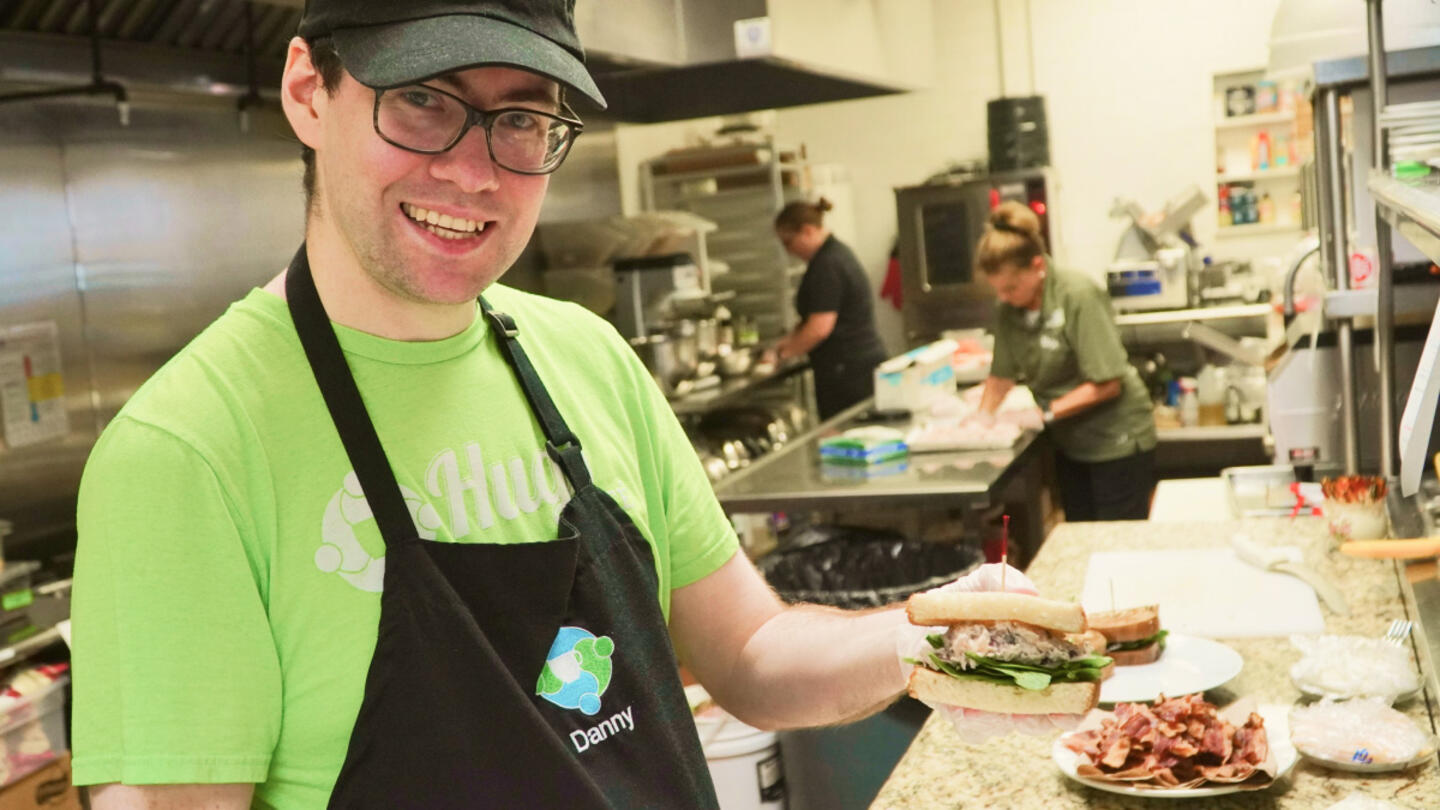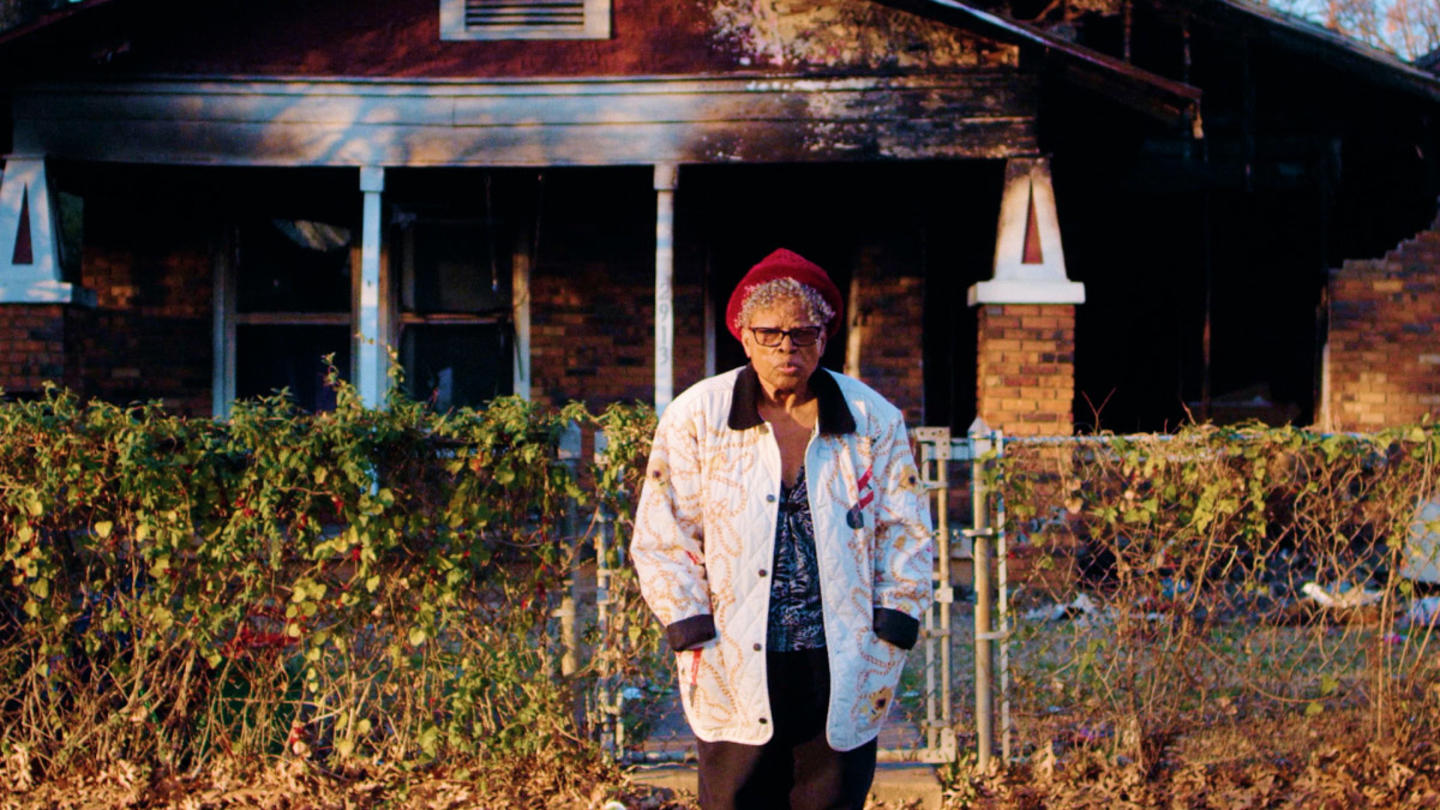In 2021, Juneteenth became America’s newest federal holiday — now celebrated every June 19. This was thanks, in large part, to the work of Opal Lee, a retired schoolteacher who in 2016 walked from Fort Worth to Washington to raise awareness about the need to commemorate the day the last enslaved people in the country learned that they were free.
“At 89, she tells me she wants to walk to D.C. to bring awareness to Juneteenth being a national holiday,” said Lee’s granddaughter, Dione Sims. “And I remember calling my dad and saying, ‘You know your mother wants to walk to D.C.’ He says, ‘Yeah, I heard. Well, you’re not going to be able to stop her.’”
Juneteenth commemorates the day — June 19, 1865 — when enslaved people in Texas learned of their freedom. Although Abraham Lincoln signed the Emancipation Proclamation in 1863, it wasn’t until more than two years later that the news reached Galveston, Texas. Black Americans in the state have commemorated Juneteenth annually since 1866.
Lee, known by many as “the grandmother of Juneteenth,” advocated for a federal holiday to commemorate the day, hoping to unite Americans of all backgrounds in celebrating the fundamental principle of freedom. Her grassroots movement started in September 2016 with about 8,000 signatures in Fort Worth. By the time she delivered the petition to Congress in January 2017, she had 1.5 million.
“I just hope somebody hears me when I say this,” said Lee. “We can get so much more done together than apart.”
A holiday that celebrates the principles America was founded on
“Juneteenth is a unique holiday,” said Dr. DeForest “Buster” Soaries, co-chair of Heal America, a movement to fight racial injustice with love and redemption. “It’s a brilliant display of both summarizing a painful past and catalyzing a powerful future. What happens on Juneteenth, led and envisioned by Opal Lee, is a march that advocates the principles that America was founded on.”
When Lee was growing up in Texas, her entire community celebrated the holiday. “We’d go to the fairground for Juneteenth, and we would have so much fun,” she said. “There’d be music and speeches; there’d be games and food and food and food.”

But the date was also traumatic for young Lee. Her family moved to Fort Worth and bought a house in a largely white neighborhood. On June 19, 1939, when Lee was 12 years old, a mob of over 500 white rioters burned her family’s house down.
“People started gathering and the police couldn’t control the mob,” she said. “Those people tore that place asunder. They pulled the furniture out and burned it.”
Soaries finds this to be the most profound aspect of Lee’s leadership. “If she can do it, then we all can do it,” he said.
“Rather than using Juneteenth as an annual reminder of how evil those people were, she’s taken that very date and used it to invite people into loving, meaningful, cooperative relationships to celebrate how far America has come.”
“More people need to be aware of the significance of Juneteenth,” said Lee. “I can’t say it enough that it means freedom.”
A ‘little lady in tennis shoes getting in everybody’s business’
She did it. Lee and her supporters walked from Fort Worth to Washington in a zigzag pattern across the South, making sure to hit big cities along the way. They walked 2.5 miles a day, symbolic of the 2.5 years it took for the news of emancipation to reach enslaved people in Texas.

“So you can imagine this old woman pressing for this holiday,” said Soaries. “She was not a celebrity. This was a bottom-up, grassroots, town-by-town movement.”
“I’m really a little lady in tennis shoes getting in everybody else’s business,” Lee told reporters at the time. “And I’m having a good time doing it, too.”
In 2021, with bipartisan support, Congress passed a bill making Juneteenth a federal holiday, and President Joe Biden invited Lee to be with him when he signed it. “I tell you, I was humbled,” she said. “It was joyous.”
Now 97, Lee continues to organize her Walk for Freedom in cities across the country. In Fort Worth, participants walk 2.5 miles through the city every Juneteenth. The atmosphere is cheerful and celebratory.
“The Walk for Freedom led by Opal Lee in Fort Worth is not a protest movement,” said Soaries. “It’s not a demonstration of what people are against, but it’s rather a demonstration of what people are for. We are literally marching to affirm our belief in the founding principles of life, liberty, and pursuit of happiness.”
Sign up for the Strong & Safe Communities newsletter for stories, ideas, and advice from changemakers working with their neighbors to address the biggest problems we face.
Take ownership of the change you want to see
“Now that we actually have a holiday and it’s on the calendar, it’s more about understanding what Juneteenth means, the freedom that it represents,” said Sims, Lee's granddaughter.
During last year's Walk for Freedom, Lee encouraged supporters to keep working on freedom and equality. “I want to ask you to make yourself a committee of one,” she said. “We depend so much on the government for our needs, when we can do things for ourselves.”
“What that really means is take the ownership yourself to make a change,” said Sims, “even if there’s nobody else around you saying the same thing that you believe in.”
It’s a message Soaries hopes more people will internalize. “Opal Lee is calling people to do what America needs desperately today,” he said.
“If people can be taught to hate, they can be taught to love,” said Lee. “We know people who aren’t on the same page we are on. Change their minds. … Not gonna happen in a day. You’re going to have to work at it. And I’m hoping that the walkin’ and talkin’ I do, somebody will listen. … It was fabulous. Enjoyed it. I’m ready for next year.”
***
Heal America is supported by Stand Together Foundation, which partners with the nation’s most transformative nonprofits to break the cycle of poverty.
Learn more about Stand Together’s efforts to build strong and safe communities and explore ways you can partner with us.

People with disabilities want meaningful work — and Hugs Cafe is making it happen.

At this ‘resort,’ children with intellectual disabilities are seen as gifts to be celebrated and loved.

Veterans experience loss when leaving service. Could this be key to understanding their mental health?

The Grammy-nominated artist is highlighting the stories we don’t get to hear every day.
